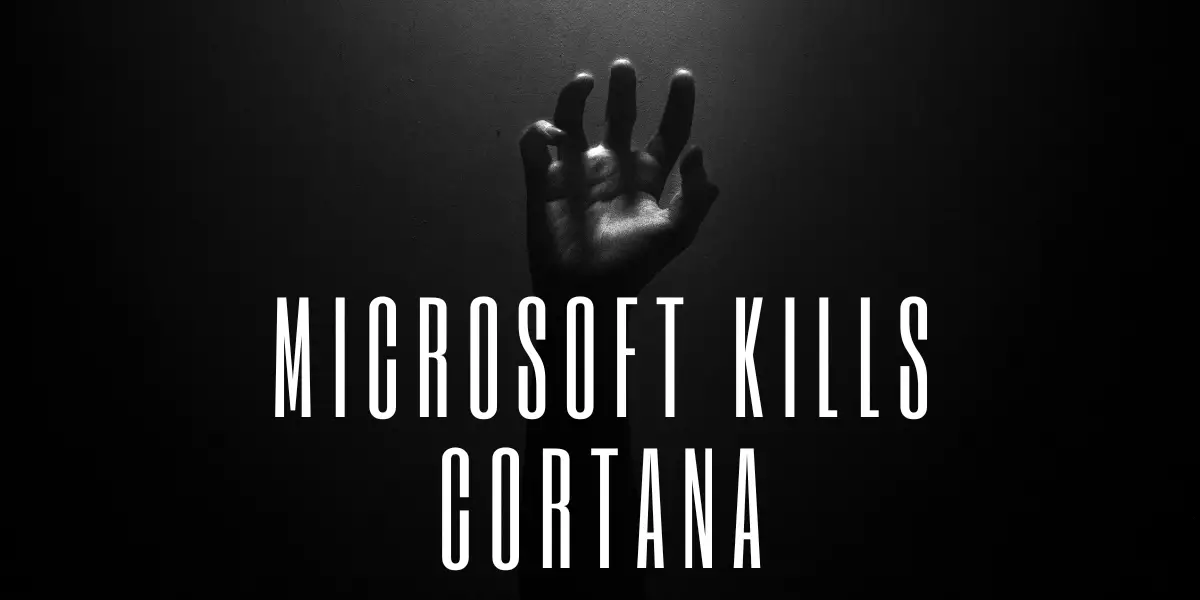Microsoft Kills Cortana: A New Chapter in AI or a Misstep?

In the rapidly evolving world of technology, change is the only constant. Giants of the industry must adapt and innovate to stay relevant, and Microsoft is no exception. The company’s recent decision to discontinue Cortana, its digital assistant app, has sparked a flurry of discussions and debates. This move signifies a strategic shift towards next-generation AI, but is it a leap forward or a misstep? This article delves deep into the implications of this decision, offering a critical analysis of Microsoft’s AI strategy.
Table of Contents
The End of an Era
Microsoft’s announcement of Cortana’s discontinuation marks a significant milestone in the tech industry. The decision, first revealed in June 2023, signifies the end of Cortana as a standalone app in Windows, starting from August 2023. This move has left many questioning the company’s strategy and its implications for the future of digital assistants.
Cortana's Legacy: A Tale of Missed Opportunities?
Cortana, first launched on Windows Phone 8.1 in 2014 and later brought to Windows 10 PCs, was Microsoft’s attempt to ride the wave of digital assistants. However, despite its innovative features and integration into the Windows ecosystem, Cortana struggled to gain the same momentum as its competitors, Alexa and Google Assistant. The lack of interest from third-party manufacturers to include Cortana in their products further limited its reach and potential. Was Cortana a missed opportunity for Microsoft, or was it a stepping stone towards something bigger?
The Transition to AI-Powered Productivity: A Strategic Shift or a Desperate Pivot?
Microsoft’s decision to kill Cortana is not an abrupt end but rather a strategic shift towards a future powered by more advanced AI. The company sees Cortana as a stepping stone towards this new AI future, where users will rely on a smarter chatbot running GPT-4, thanks to Microsoft’s partnership with OpenAI. However, one cannot help but wonder if this shift is a well-thought-out strategy or a desperate pivot in the face of Cortana’s lackluster performance.
The Dawn of Bing Chat and Windows Copilot: A New Hope or a Risky Bet?
As Cortana fades into the background, Microsoft is already previewing its AI-powered Windows Copilot feature in Windows 11 preview builds. This feature allows access to Bing Chat directly from the desktop, marking a significant step in Microsoft’s AI integration strategy. But is this new direction a beacon of hope for Microsoft’s AI ambitions, or is it a risky bet that could backfire?
See more:Is GPT-5 Coming Soon? Open AI Has Applied a New Trademark for It
The Future of AI in Microsoft: A Visionary Approach or a Blind Leap?
Microsoft’s shift from Cortana to Bing Chat and Windows Copilot may be a sign of things to come in the tech industry. Other tech giants, such as Amazon and Apple, are also reportedly exploring how their digital assistants could evolve into more capable AI tools. Microsoft’s bold move may just be the beginning of a new era in AI-powered productivity. But is this approach visionary, or is it a blind leap into the unknown?
Conclusion
The discontinuation of Cortana marks a significant shift in Microsoft’s strategy, but it is not a step back. Instead, it is a leap forward towards a future where AI is deeply integrated into our daily productivity tools. As we bid farewell to Cortana, we can look forward to the exciting possibilities that Bing Chat and Windows Copilot will bring. However, it is crucial to critically analyze these changes and their potential implications. Only time will tell if Microsoft’s gamble on next-gen AI will pay off or if it will lead to another Cortana-like scenario.

